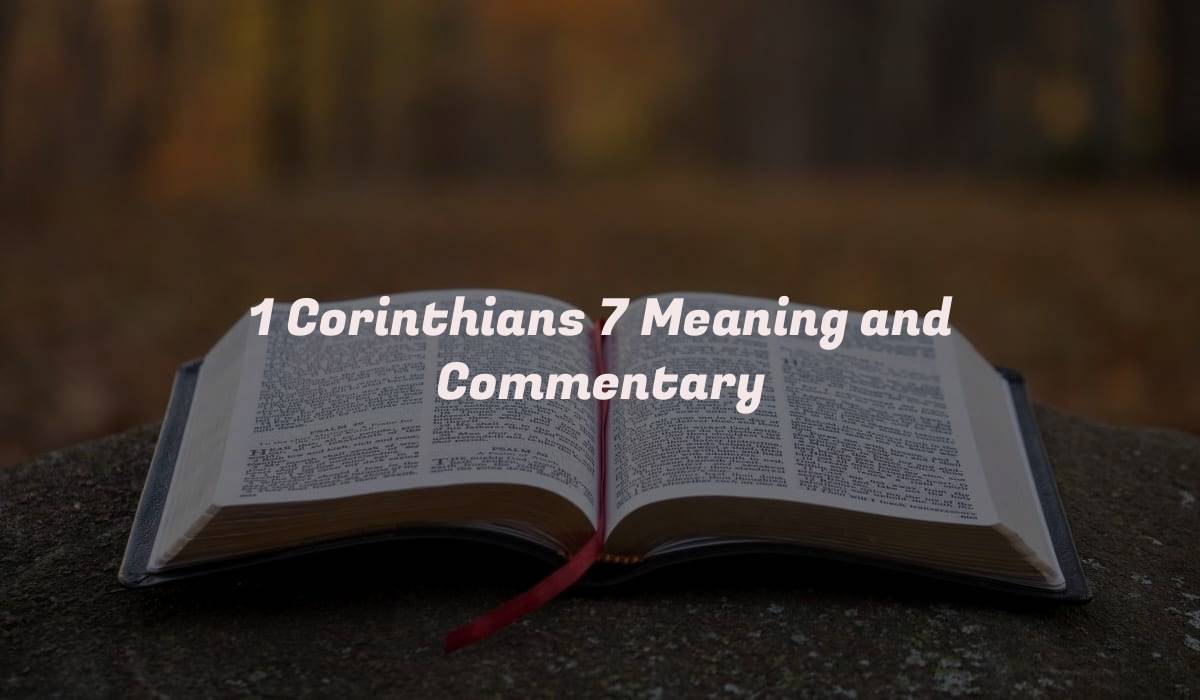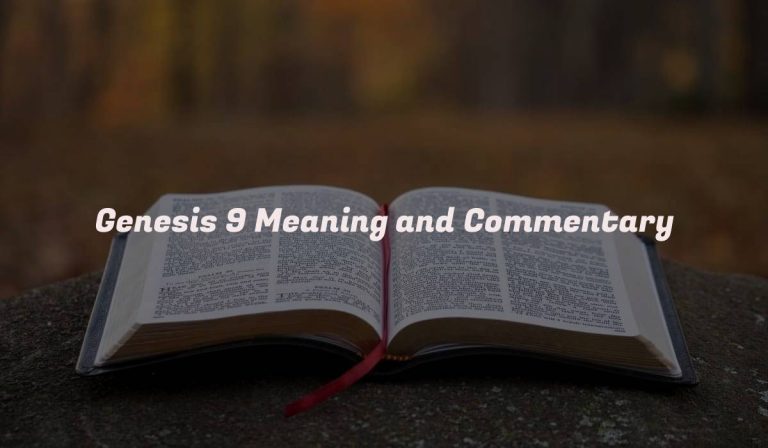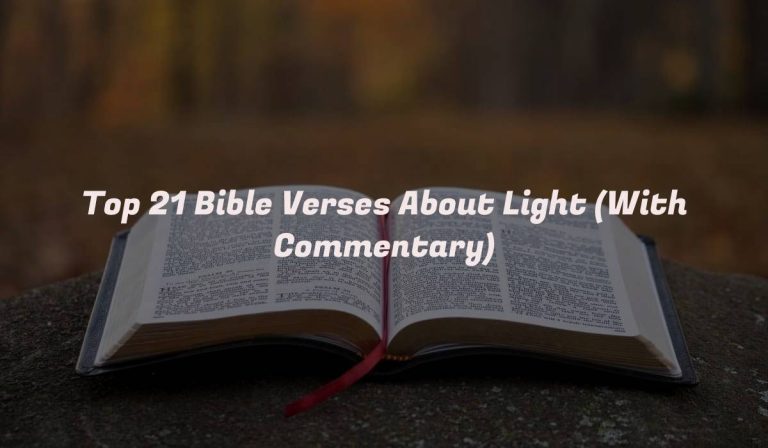1 Corinthians 7 Meaning and Commentary

1 Corinthians 7
“Now for the matters you wrote about: “It is good for a man not to have sexual relations with a woman.” 2 But since sexual immorality is occurring, each man should have sexual relations with his own wife, and each woman with her own husband. 3 The husband should fulfill his marital duty to his wife, and likewise the wife to her husband. 4 The wife does not have authority over her own body but yields it to her husband. In the same way, the husband does not have authority over his own body but yields it to his wife. 5 Do not deprive each other except perhaps by mutual consent and for a time, so that you may devote yourselves to prayer. Then come together again so that Satan will not tempt you because of your lack of self-control. 6 I say this as a concession, not as a command. 7 I wish that all of you were as I am. But each of you has your own gift from God; one has this gift, another has that.
8 Now to the unmarried and the widows I say: It is good for them to stay unmarried, as I do. 9 But if they cannot control themselves, they should marry, for it is better to marry than to burn with passion.
10 To the married I give this command (not I, but the Lord): A wife must not separate from her husband. 11 But if she does, she must remain unmarried or else be reconciled to her husband. And a husband must not divorce his wife.
12 To the rest I say this (I, not the Lord): If any brother has a wife who is not a believer and she is willing to live with him, he must not divorce her. 13 And if a woman has a husband who is not a believer and he is willing to live with her, she must not divorce him. 14 For the unbelieving husband has been sanctified through his wife, and the unbelieving wife has been sanctified through her believing husband. Otherwise your children would be unclean, but as it is, they are holy.
15 But if the unbeliever leaves, let it be so. The brother or the sister is not bound in such circumstances; God has called us to live in peace. 16 How do you know, wife, whether you will save your husband? Or, how do you know, husband, whether you will save your wife?
17 Nevertheless, each person should live as a believer in whatever situation the Lord has assigned to them, just as God has called them. This is the rule I lay down in all the churches. 18 Was a man already circumcised when he was called? He should not become uncircumcised. Was a man uncircumcised when he was called? He should not be circumcised. 19 Circumcision is nothing and uncircumcision is nothing. Keeping God’s commands is what counts. 20 Each person should remain in the situation they were in when God called them.
21 Were you a slave when you were called? Don’t let it trouble you—although if you can gain your freedom, do so. 22 For the one who was a slave when called to faith in the Lord is the Lord’s freed person; similarly, the one who was free when called is Christ’s slave. 23 You were bought at a price; do not become slaves of human beings. 24 Brothers and sisters, each person, as responsible to God, should remain in the situation they were in when God called them.
25 Now about virgins: I have no command from the Lord, but I give a judgment as one who by the Lord’s mercy is trustworthy. 26 Because of the present crisis, I think that it is good for a man to remain as he is. 27 Are you pledged to a woman? Do not seek to be released. Are you free from such a commitment? Do not look for a wife. 28 But if you do marry, you have not sinned; and if a virgin marries, she has not sinned. But those who marry will face many troubles in this life, and I want to spare you this.
29 What I mean, brothers and sisters, is that the time is short. From now on those who have wives should live as if they do not; 30 those who mourn, as if they did not; those who are happy, as if they were not; those who buy something, as if it were not theirs to keep; 31 those who use the things of the world, as if not engrossed in them. For this world in its present form is passing away.
32 I would like you to be free from concern. An unmarried man is concerned about the Lord’s affairs—how he can please the Lord. 33 But a married man is concerned about the affairs of this world—how he can please his wife— 34 and his interests are divided. An unmarried woman or virgin is concerned about the Lord’s affairs: Her aim is to be devoted to the Lord in both body and spirit. But a married woman is concerned about the affairs of this world—how she can please her husband. 35 I am saying this for your own good, not to restrict you, but that you may live in a right way in undivided devotion to the Lord.
36 If anyone is worried that he might not be acting honorably toward the virgin he is engaged to, and if his passions are too strong and he feels he ought to marry, he should do as he wants. He is not sinning. They should get married. 37 But the man who has settled the matter in his own mind, who is under no compulsion but has control over his own will, and who has made up his mind not to marry the virgin—this man also does the right thing. 38 So then, he who marries the virgin does right, but he who does not marry her does better.
39 A woman is bound to her husband as long as he lives. But if her husband dies, she is free to marry anyone she wishes, but he must belong to the Lord. 40 In my judgment, she is happier if she stays as she is—and I think that I too have the Spirit of God.”
1 Corinthians 7 Meaning
The Bible verses in 1 Corinthians 7 discuss various aspects of marriage, singleness, and divorce. It addresses the importance of each individual’s specific calling and how it may affect their marital status, while also providing practical guidance for those in relationships. These verses remind us of the significance of seeking God’s guidance in our relationships and understanding His will for our lives.
1 Corinthians 7 Commentary and Explanation
Chapter 7 of 1 Corinthians addresses several practical issues related to marriage, singleness, and Christian living. In this chapter, the Apostle Paul provides guidance to the Corinthian church, and by extension, to us as well.
Verse 1: In the opening verse, Paul acknowledges the Corinthians’ previous letter in which they sought guidance on various matters, including celibacy and marriage. He reminds them that it is “good for a man not to touch a woman,” which could be seen as advocating celibacy as a path to holiness. However, Paul also acknowledges the reality of human nature and the temptation of sexual immorality, which leads him to affirm the sanctity of marriage.
Verse 2: Paul encourages married couples to fulfill their marital duties to one another, emphasizing the importance of sexual intimacy within marriage. He recognizes that abstaining from sexual relations for extended periods can lead to temptation and advises against it.
Verse 6: Here, Paul recognizes that his counsel is not a command from the Lord but his own judgment, yet he believes it to be spiritually insightful. It reminds us that not all advice is equal, and we must discern what aligns with God’s Word.
Verse 8: Paul speaks to the unmarried and widows, suggesting that it’s good for them to remain unmarried, as he himself is. However, he clarifies that if they lack self-control, it is better to marry than to burn with lust. This verse underscores the importance of self-control and discernment in matters of marriage and celibacy.
Verse 10: Paul addresses those who are already married, instructing them not to divorce their spouses. He emphasizes the Lord’s command on this matter, referencing Jesus’ teaching on divorce in Matthew 19:3-9. This aligns with the sanctity of marriage as a lifelong commitment.
Verse 15: In the case of an unbelieving spouse wanting to leave, Paul advises the believer to let the unbeliever go in peace. This aligns with Jesus’ teaching on not being unequally yoked with unbelievers (2 Corinthians 6:14).
Verse 17: Paul urges us to remain in the situation in which we were called, whether married or single. This underscores the idea that our primary focus should be on living out our faith and serving God within our current circumstances.
Verse 25: Paul addresses the unmarried and widows once again, stating that it’s good for them to remain as they are, but if they cannot control themselves, it’s better to marry. This reiterates the importance of self-control and discernment.
Verse 32-35: Paul highlights the advantage of singleness in terms of undivided devotion to the Lord, emphasizing that single individuals can focus more on pleasing the Lord. However, he acknowledges that marriage is not sinful, but it does come with added responsibilities.
Verse 39-40: Paul gives instructions concerning remarriage after the death of a spouse. He encourages widows to remarry but emphasizes that it should be “in the Lord,” meaning the marriage should be with a fellow believer.
1 Corinthians 7 provides valuable guidance on marriage, singleness, and the pursuit of holiness. It emphasizes the importance of self-control, discernment, and seeking the Lord’s guidance in these matters. While singleness may offer unique opportunities for undivided devotion to God, marriage is also a God-ordained institution that should be honored and maintained with commitment and faithfulness.
Context of 1 Corinthians 7
1 Corinthians was written by the apostle Paul to address various issues and challenges faced by the church in Corinth. In this particular section, Paul responds to specific questions posed to him by the Corinthians regarding marriage, singleness, and divorce.
The Corinthians were living in a highly pagan and immoral society, where sexual promiscuity and immorality were prevalent. In light of this context, Paul provides guidance to the believers, helping them to navigate these issues in a way that honors God and promotes holy living.
Lessons From 1 Corinthians 7
From these verses, we learn several important lessons:
- Marriage is a safeguard against sexual temptation and immorality. God has designed marriage to be a holy and exclusive union between a man and a woman.
- Singleness is also valued and encouraged, as it allows individuals to devote themselves entirely to the Lord’s work.
- Self-control is a crucial virtue in both marriage and singleness. It requires us to rely on the power and guidance of the Holy Spirit.
- Divorce is not in God’s original plan, and every effort should be made to save and strengthen marriages.
Final Thoughts
As we reflect on these verses, let us remember that God’s design for marriage and singleness is centered around holiness and the pursuit of His will. Whether we are married or single, let us seek His guidance and strive to honor Him in our relationships. May we exercise self-control and rely on His strength to navigate the challenges we face, knowing that He is with us every step of the way






